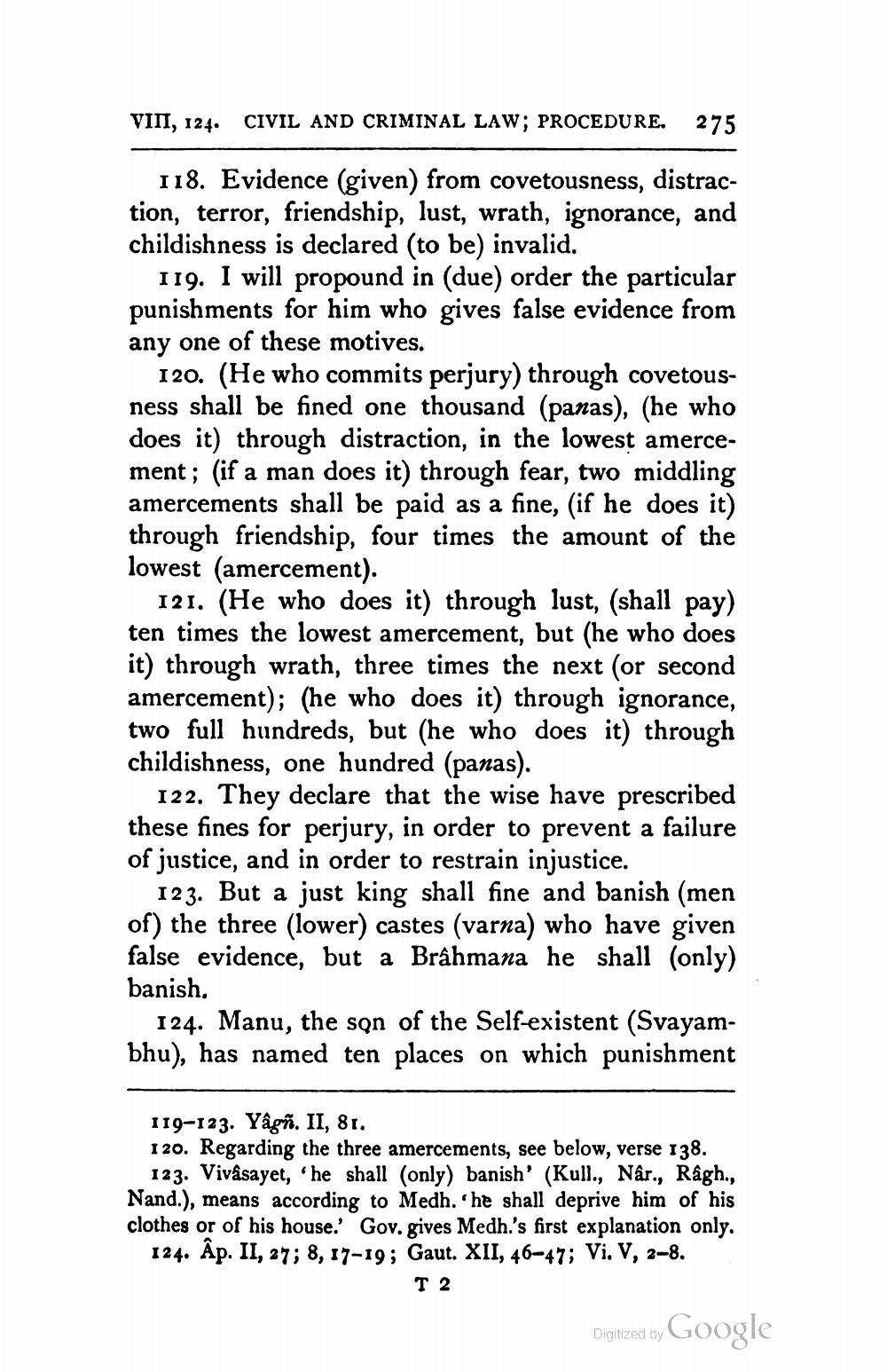________________
VIII, 124. CIVIL AND CRIMINAL LAW; PROCEDURE. 275
118. Evidence (given) from covetousness, distraction, terror, friendship, lust, wrath, ignorance, and childishness is declared (to be) invalid.
119. I will propound in (due) order the particular punishments for him who gives false evidence from any one of these motives.
120. (He who commits perjury) through covetousness shall be fined one thousand (panas), (he who does it) through distraction, in the lowest amercement; (if a man does it) through fear, two middling amercements shall be paid as a fine, (if he does it) through friendship, four times the amount of the lowest (amercement).
121. (He who does it through lust, (shall pay) ten times the lowest amercement, but (he who does it) through wrath, three times the next (or second amercement); (he who does it) through ignorance, two full hundreds, but he who does it) through childishness, one hundred (panas).
122. They declare that the wise have prescribed these fines for perjury, in order to prevent a failure of justice, and in order to restrain injustice.
123. But a just king shall fine and banish (men of) the three (lower) castes (varna) who have given false evidence, but a Brahmana he shall (only) banish.
124. Manu, the son of the Self-existent (Svayambhu), has named ten places on which punishment
119-123. Yâgñ. II, 81. 120. Regarding the three amercements, see below, verse 138.
123. Vivasayet, 'he shall (only) banish' (Kull., Nâr., Râgh., Nand.), means according to Medh. he shall deprive him of his clothes or of his house.' Gov. gives Medh.'s first explanation only. 124. Ap. II, 27; 8, 17-19; Gaut. XII, 46-47; Vi. V, 2-8.
T 2
Digitized by Google




